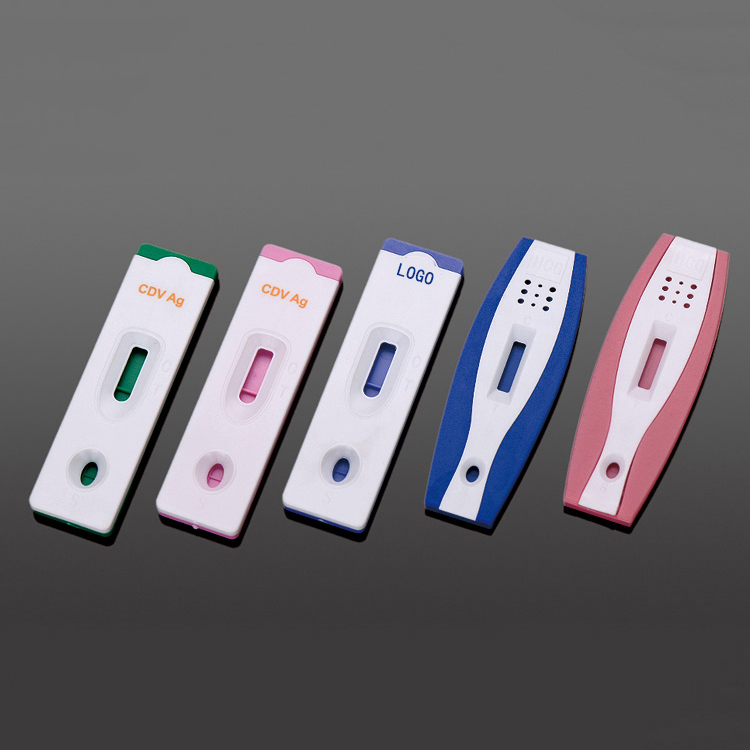ធ្នូ . 30, 2024 04:16 Back to list
HIV Home Testing Kits Providers and Resources for Easy Access and Convenience
Understanding HIV Home Test Kits and Their Suppliers
In the landscape of public health, the significance of early detection and treatment of HIV cannot be overstated. With the global push towards promoting safety and reducing the stigma associated with HIV testing, home test kits have emerged as a viable solution. These kits enable individuals to check their status privately and conveniently, therefore increasing the likelihood of those at risk seeking the information they need.
The Importance of HIV Home Test Kits
HIV home test kits offer a discreet way for individuals to test themselves for the virus. These kits typically include everything needed for the test instructions, testing materials, and a method for confirmation and follow-up. The primary appeal of these home testing kits lies in the privacy and autonomy they provide. Many individuals may feel uncomfortable or anxious about visiting a clinic or hospital for HIV testing due to fears of judgment or stigma. Home test kits eliminate this barrier, encouraging more people to take action regarding their health.
Moreover, early detection of HIV is crucial. Individuals who find out they are HIV-positive can begin treatment early, potentially leading to a longer and healthier life. Additionally, keeping the virus undetectable through consistent treatment greatly reduces the risk of transmission to others, making home testing an integral part of public health strategies.
Types of Home Testing Kits
There are generally two types of HIV home test kits available on the market oral fluid tests and blood tests. Oral fluid tests use a swab to collect saliva from the gums. Blood tests, on the other hand, may require a finger prick to obtain a small blood sample. Both types of tests are designed to be user-friendly and provide results within a short period, typically 20 to 40 minutes.
It’s important for users to follow the instructions carefully to ensure accurate results. If a home test returns a reactive result, users are advised to follow up with a healthcare provider for confirmatory testing and to discuss treatment options if necessary.
Choosing Reliable Suppliers
hiv home test kit suppliers

As the demand for HIV home test kits continues to grow, it is crucial for consumers to choose reputable suppliers. Not all products on the market are created equal, and individuals should be cautious when purchasing these kits online or through non-traditional channels. Renowned suppliers are often certified and may carry endorsements from health organizations.
When selecting a supplier, consider the following
1. Certification and Approval Check if the kit is approved by relevant health authorities, such as the U.S. Food and Drug Administration (FDA) or similar organizations in other countries.
2. Reputation Research the supplier’s reputation. Look for reviews and testimonials from other customers, as well as information about their customer service and return policies.
3. Educational Resources A reputable supplier often provides educational materials that can help users understand the testing process, the significance of the results, and guidance on next steps.
4. Accessibility Consider whether the supplier offers discreet shipping options and how accessible their customer service is for addressing queries or concerns about the product.
Conclusion
HIV home test kits represent a critical tool in the fight against HIV/AIDS, providing individuals with the means to take control of their health in a private and accessible manner. By choosing reliable suppliers, individuals can ensure they are using accurate and safe testing methods. As stigma around HIV continues to wane and awareness grows, the hope is that more individuals will feel empowered to test themselves and seek the necessary care and treatment – ultimately leading to a healthier society. With the right information and resources, HIV testing can become a norm rather than a source of fear, paving the way for better health outcomes for everyone.
-
Dengue NS1 Rapid Diagnostic Test Kit
NewsMar.07,2025
-
Dengue NS1 Rapid Diagnostic Test Kit
NewsMar.07,2025
-
Dengue NS1 Rapid Diagnostic Test Kit
NewsMar.07,2025
-
Transferrin Rapid Test Cassette Tumor Marker TF Card
NewsMar.07,2025
-
Malaria Pf Pan Rapid Diagnostic Test Kit
NewsMar.07,2025
-
malaria pf / pan ag rapid test
NewsMar.07,2025

